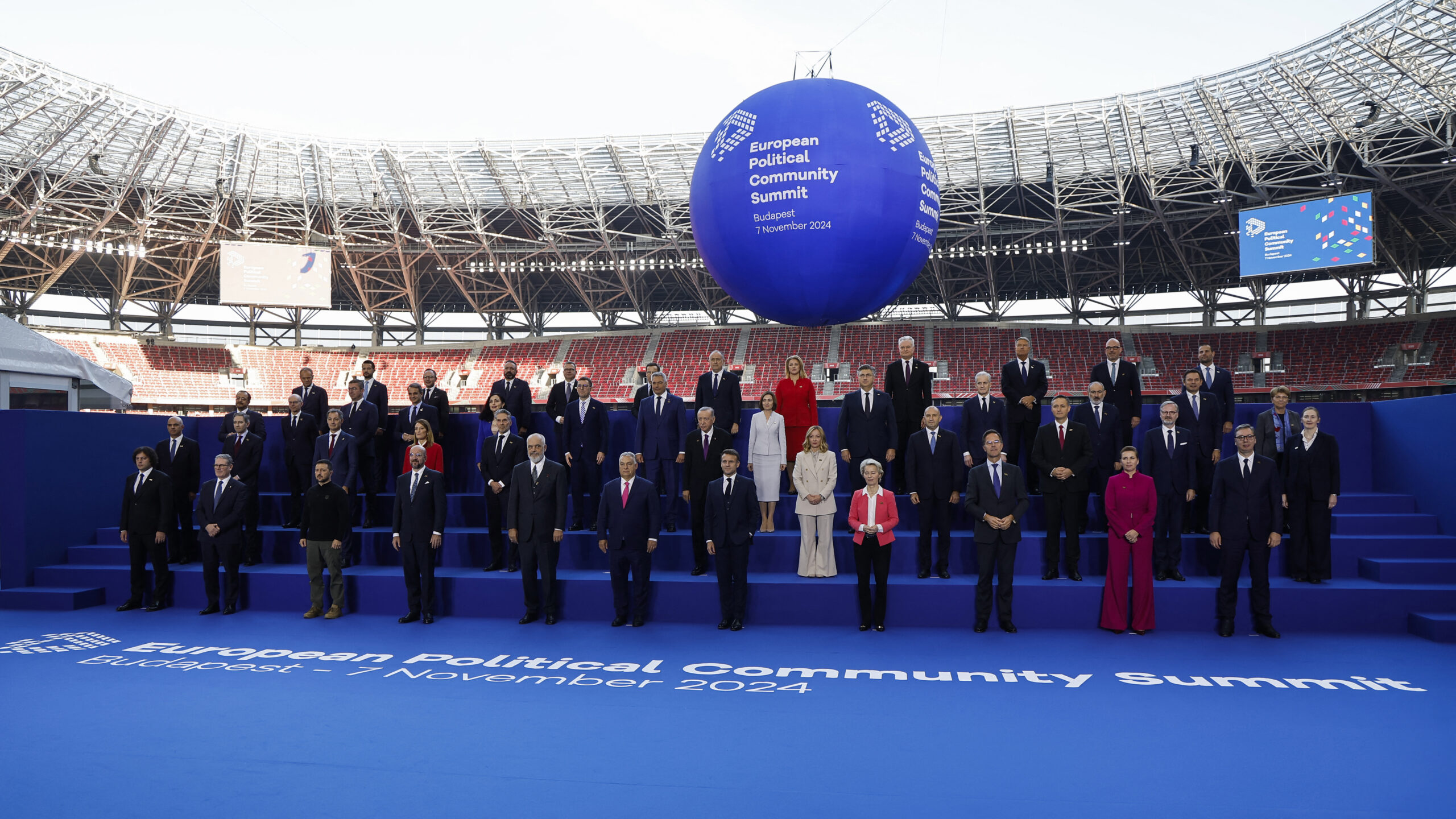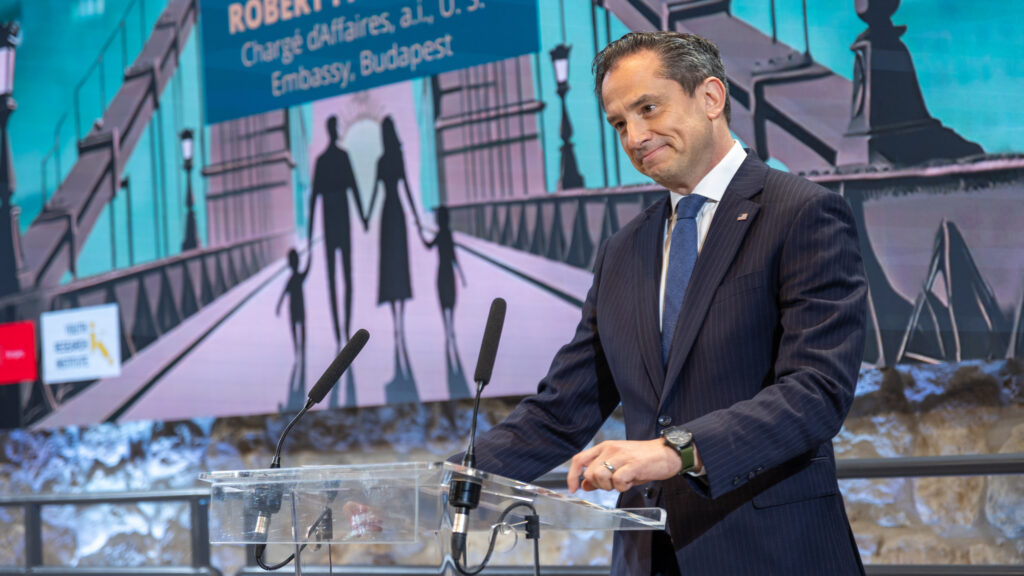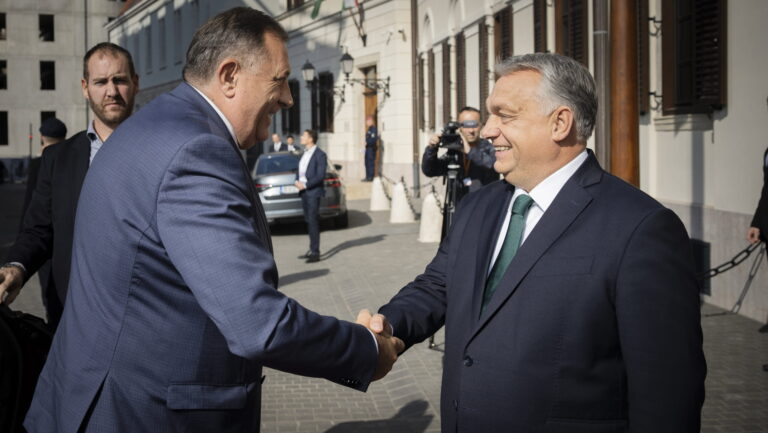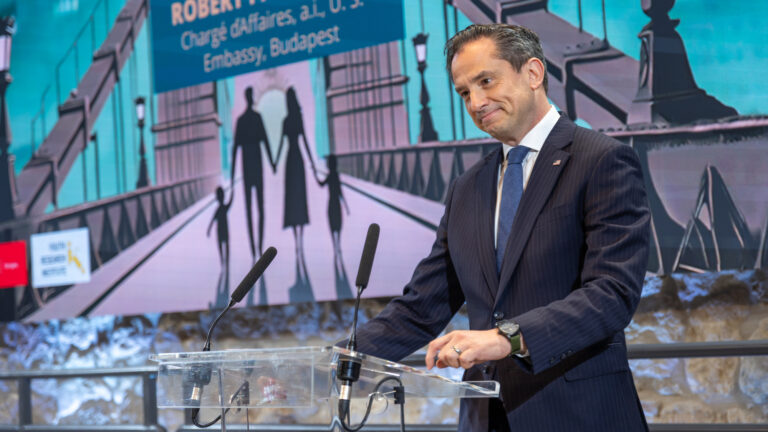When discussing Europe, we often—especially those of us who live here—tend to equate the continent with the European Union. However, Europe is home to nearly 50 countries, of which only 27 are EU members, although many others aspire to join. European security and prosperity depend not only on the 27 member states of the EU but also—perhaps to a much greater extent—on those countries that are not part of the integration.
‘Europe is larger and much more than the European Union, so we must accelerate integration and strengthen cooperation, as the continent stands to lose significantly from a lack of such collaboration,’ stated Hungarian Minister of Foreign Affairs and Trade Péter Szijjártó at the European Political Community (EPC) summit in Budapest on Thursday. The event brings together the Heads of State and Government from 42 countries, along with leaders from the European Union, NATO, and the Council of Europe, and is regarded as the largest diplomatic event in Hungary’s modern history.
An Important Step Towards Peace
However, the summit goes beyond merely accelerating the enlargement process and forging closer partnerships—though these are, of course, crucial and essential to the ultimate goal of promoting prosperity, competitiveness, and economic performance. Today, perhaps more than ever before, we have the opportunity to take a significant step towards ending the war in Ukraine, which has been raging in the heart of Europe, in the European Union’s neighbourhood, for nearly three years.
On Wednesday, Donald Trump won the US elections, a result that will fundamentally alter international politics in various ways. One of these aspects is Western support for Ukraine. Trump and certain factions within the Republican Party have long criticized the financial and military aid being sent from Washington to Kyiv, advocating for a reduction in the level of assistance, arguing that those resources would be better allocated to restoring the US economy, which has been severely impacted by the Democratic administration. During his campaign, Trump also repeatedly stated that he would seek to end the conflict in Ukraine and initiate peace talks between Russia and Ukraine.
This would leave the pro-war European Union isolated in its stance, solely supporting Ukraine’s defensive war, for which it lacks both the financial and military strength. It is also important to note that it is not Europe as a whole but rather the EU—excluding Hungary and Slovakia—that is pro-war. The Balkan states, including Serbia and Bulgaria, Türkiye (which is also part of Europe and attending the EPC Summit), and Georgia, all advocate for peace and seek to end the conflict. Donald Trump’s victory will therefore bolster their position, enabling them to exert pressure on Western European leaders and Brussels during the EPC Summit.
In his opening speech at the EPC, Mr Orbán stated that the plenary session would address the challenges of European security. ‘How can peace be restored in Europe? How can Europe take greater responsibility for its own security and peace in the future? How can Europe better defend its interests? How can Europe remain a meaningful player in the negotiations and processes that determine its own destiny?,’ asked the Hungarian PM. He added that the EPC serves as a forum for exchanging views on significant strategic issues, of which there are many: the fight against illegal migration, the question of enhancing competitiveness, strengthening strategic autonomy, and the war in Ukraine.
However, the first step in overcoming these challenges would be to end the war in Ukraine. Without this resolution, there is little chance of enhancing competitiveness, addressing migration, and establishing a new European security system. From this perspective, it is concerning that the outgoing President of the European Council, Charles Michel, continues to see the support and strengthening of Ukraine as the foundation for European security. Nevertheless, let us hope that Trump’s arrival will also temper the persistent pro-war stance in Brussels.
A New Chapter
It is perhaps a coincidence, or fate, that on the day following Trump’s re-election, a summit crucial for the future of Europe is being held in the country of his closest European ally. While the EPC is by no means as advanced in its integration as the EU—it is a two-year initiative—, its importance should not be underestimated. EU leaders here encounter perspectives that arise close to the EU’s borders but often do not attach much significance to them. Although Hungary is an EU member state, leaders in Brussels frequently refuse to listen to its views, trivialize its position, and label it as pro-Putin—much as they do with other voices that diverge from the Western mainstream.
‘With Donald Trump’s victory, Hungary has gained its most important ally, which could enhance its influence in Europe and within the EU’
However, this may change in the near future. With the restoration of US–Hungarian relations and Viktor Orbán’s strong relationship with Donald Trump, Hungary could emerge as one of the most significant countries in Europe—not just within the European Union—in the coming period. With Donald Trump’s victory, Hungary has gained its most important ally, which could enhance its influence in Europe and within the EU. The already unfounded accusations of isolation are likely to become even more absurd, as evidenced by today’s EPC summit, where leaders from all EU member states are represented, except for the German Chancellor, whose government is in disarray.
A new chapter in Hungary’s international reputation begins today with the EPC Summit, which will be characterized by cooperation, respect, and the promotion of Europe’s interests, as well as peace and stability.
Read more about the EPC:








